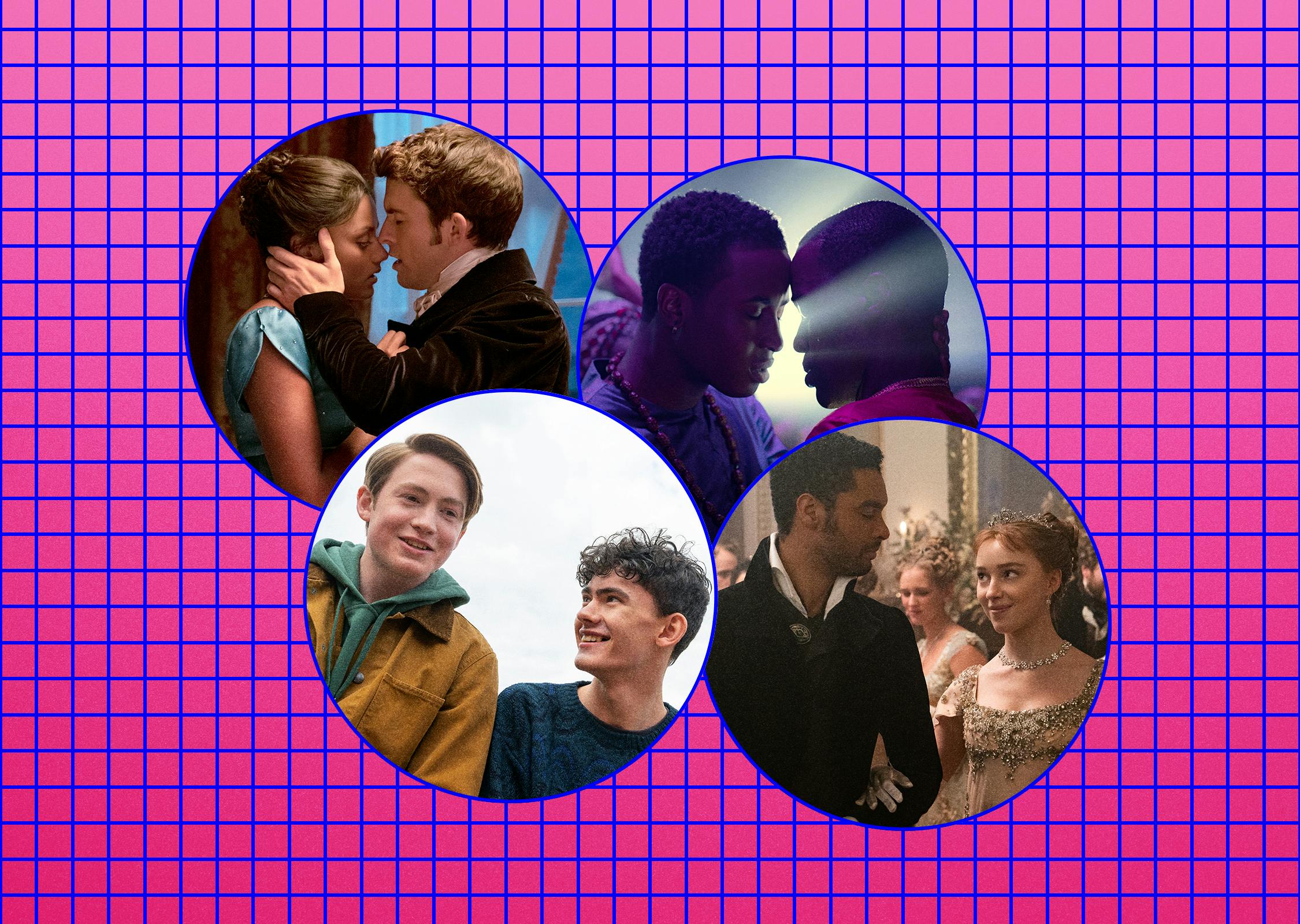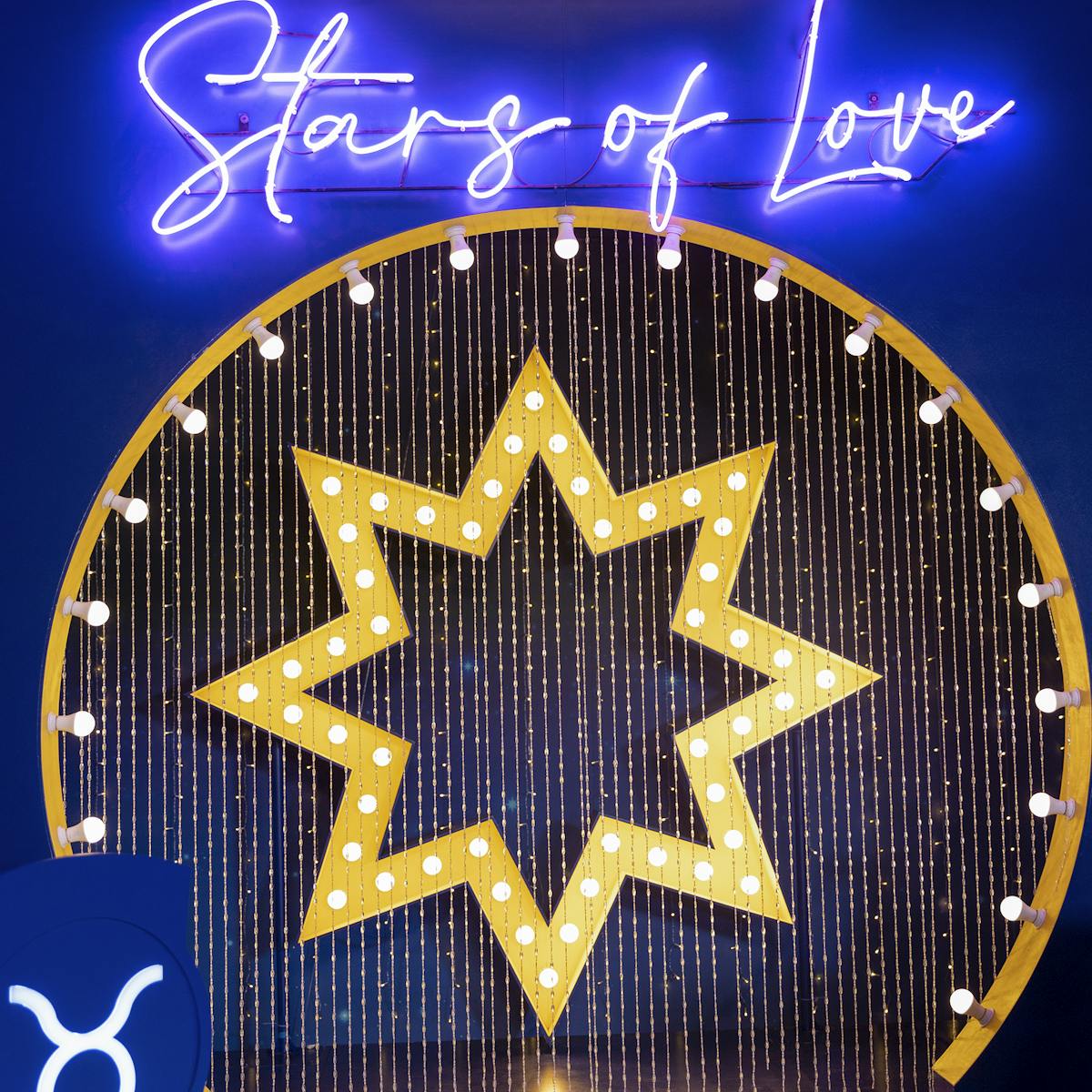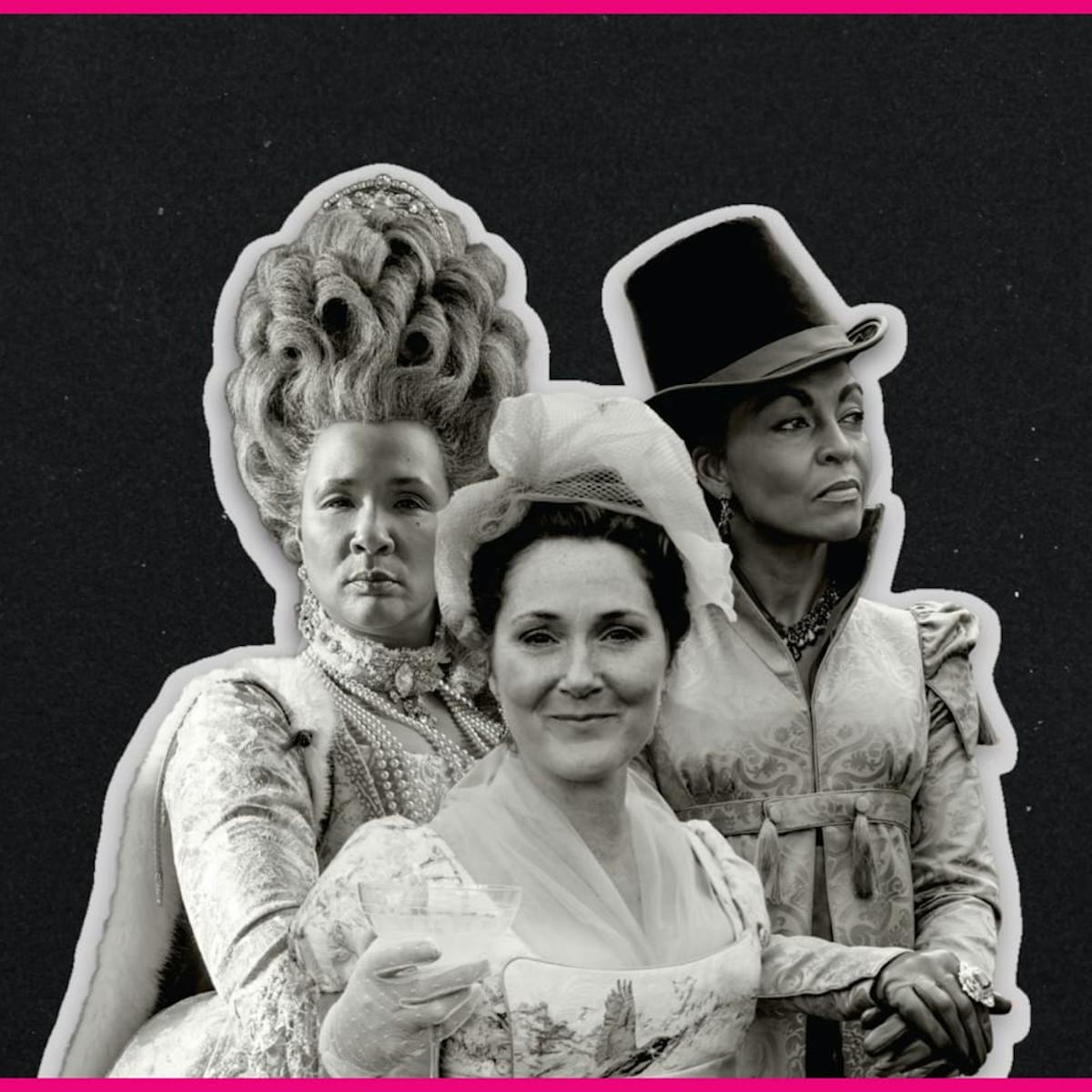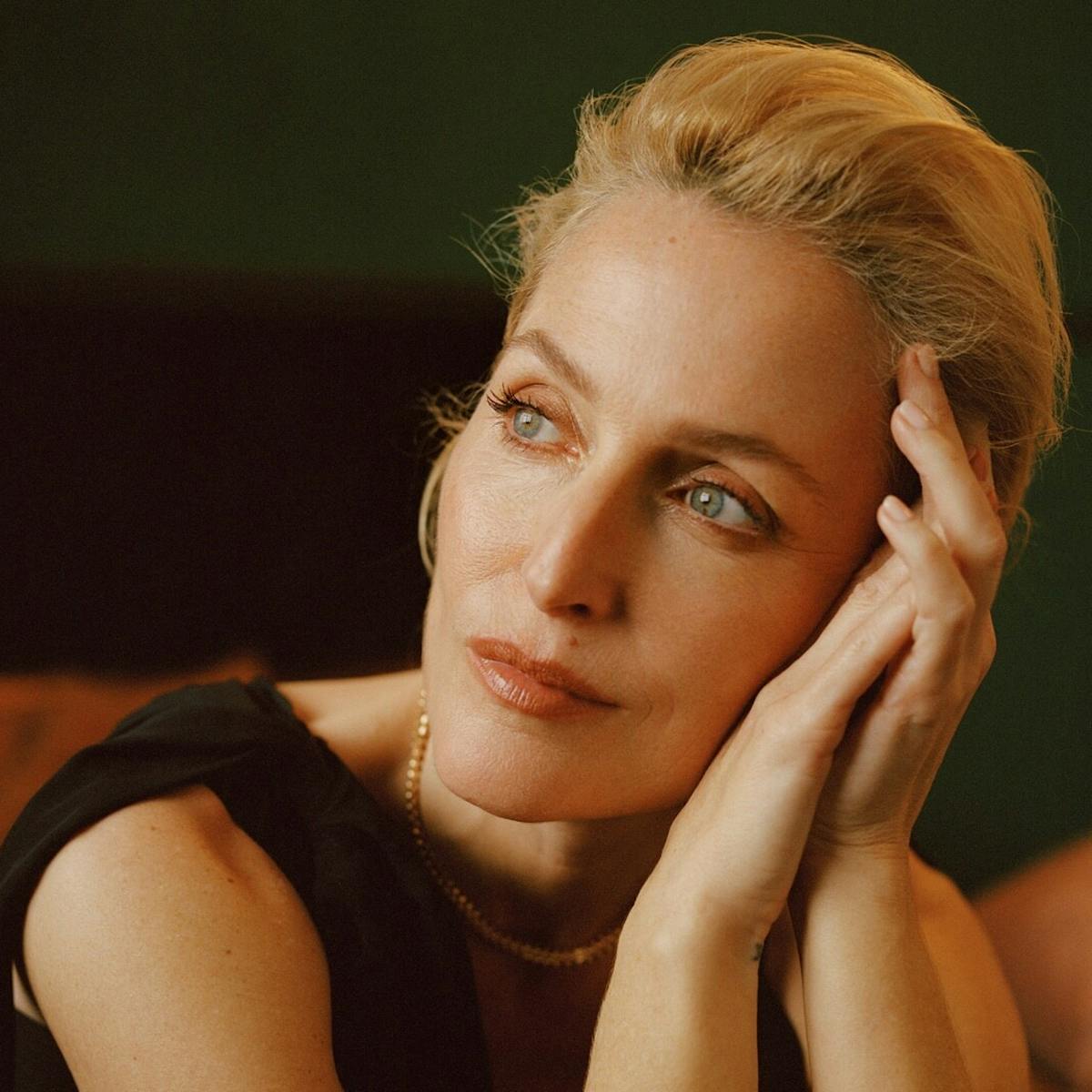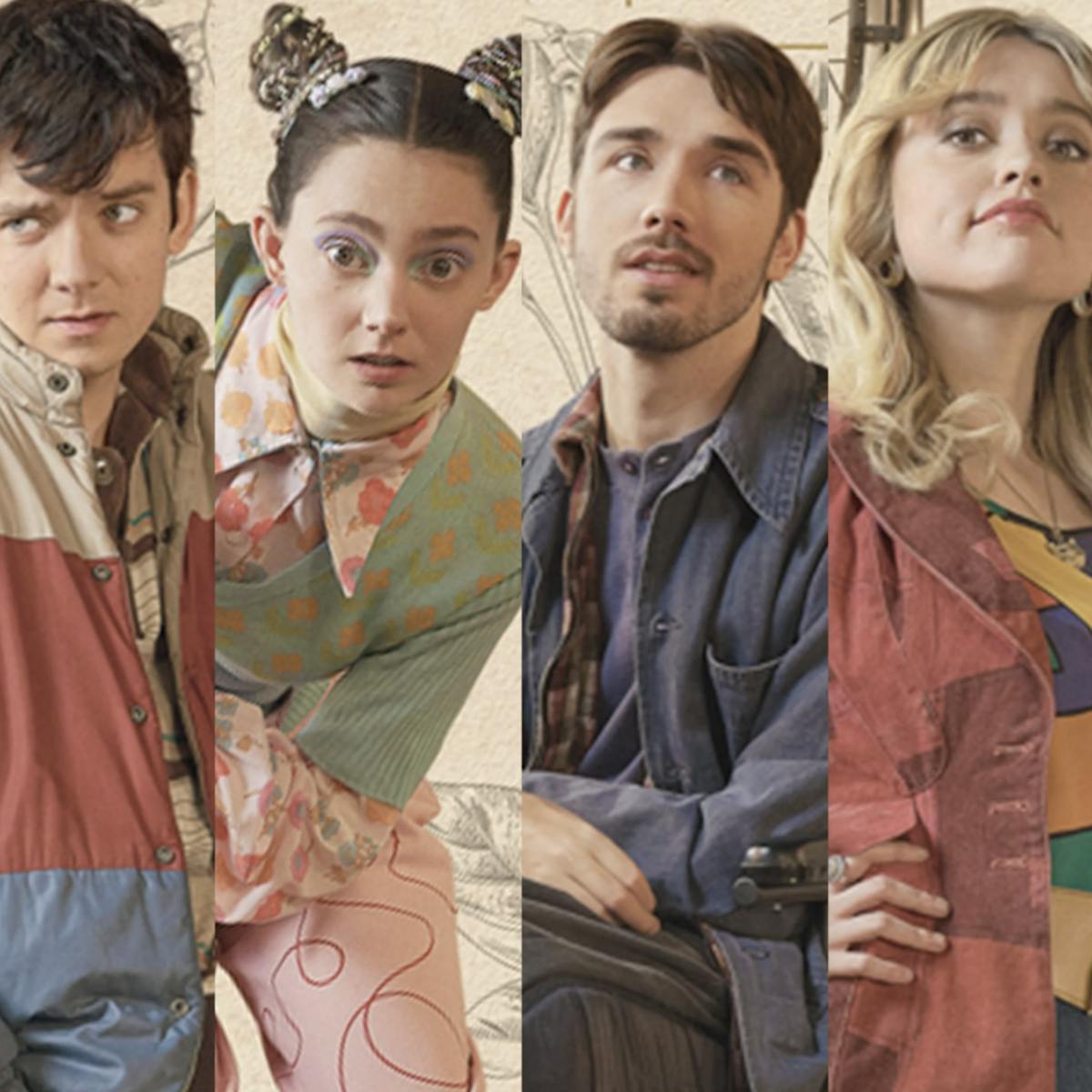Intimacy Coordinators Lizzy Talbot and David Thackeray perfect the principles of pleasure in Heartstopper, Bridgerton, and Sex Education.
When Lizzy Talbot first began her career as an intimacy coordinator back in 2015, the role didn’t exist. “I had been working as a stunt coordinator when I noticed a huge disparity between the way that we were working on fight scenes as opposed to intimate scenes,” says Talbot. “We had terminology, we had protocols, we had safety techniques for the violence, but when it came to intimacy, there was nothing.” Talbot applied the safety techniques she’d learned as a stunt coordinator toward helping actors and directors fully develop their intimacy scenes and feel secure in their choices. She has coordinated intimacy scenes on a wide range of series from Law and Order: Special Victims Unit to The Nevers and both seasons of Bridgerton.
Unlike Talbot, David Thackeray came to intimacy coordinating in 2016 through his work as an actor and director. “Having that kind of actor’s process and director’s process really helps because I understand what the actors are going through as I’ve been through it myself — and that was without an intimacy coordinator — and I know what the director needs,” says Thackeray.
As the intimacy coordinator for the debut season of Heartstopper and Sex Education’s second and third seasons, Thackeray’s choreographed the electric and sometimes awkward moments of young love and sexual exploration both shows are known for, providing a safe runway for actors. “Some of the Heartstopper cast have said [to me], ‘It’s nice to know that someone is there specifically for these moments.’”
In an appropriately “intimate” conversation, Talbot and Thackeray share how their work on set transforms potentially anxious moments into memorable scenes and even behind-the-scenes pants-splitting laughter.
Choreography is Key
Lizzy Talbot: One of the things that you’re never going to see is an improvised fight scene because people will get hurt physically, and potentially emotionally and mentally. It’s the same thing here: We don’t want to have improvised intimate scenes because there are boundaries that could be crossed. So when I choreograph, I’m going to approach it like a fight scene, because then we know exactly what we’re doing: It’s a physical dialogue between two people.
David Thackeray: You’re giving the actors tools: I know where I can touch. I know what nudity I’m happy to show as an actor. Now, I don’t have to worry about that anymore, and I can think about my character; I can think about everything I would do in any other scene.
Suddenly, you’ve just gone from a scene where we’re fumbling around to something that’s got loads of detail; you’re finding stuff that you didn’t even know you could get to. You’ll find that, actually, some of the actors will be like, I feel comfortable to do that.
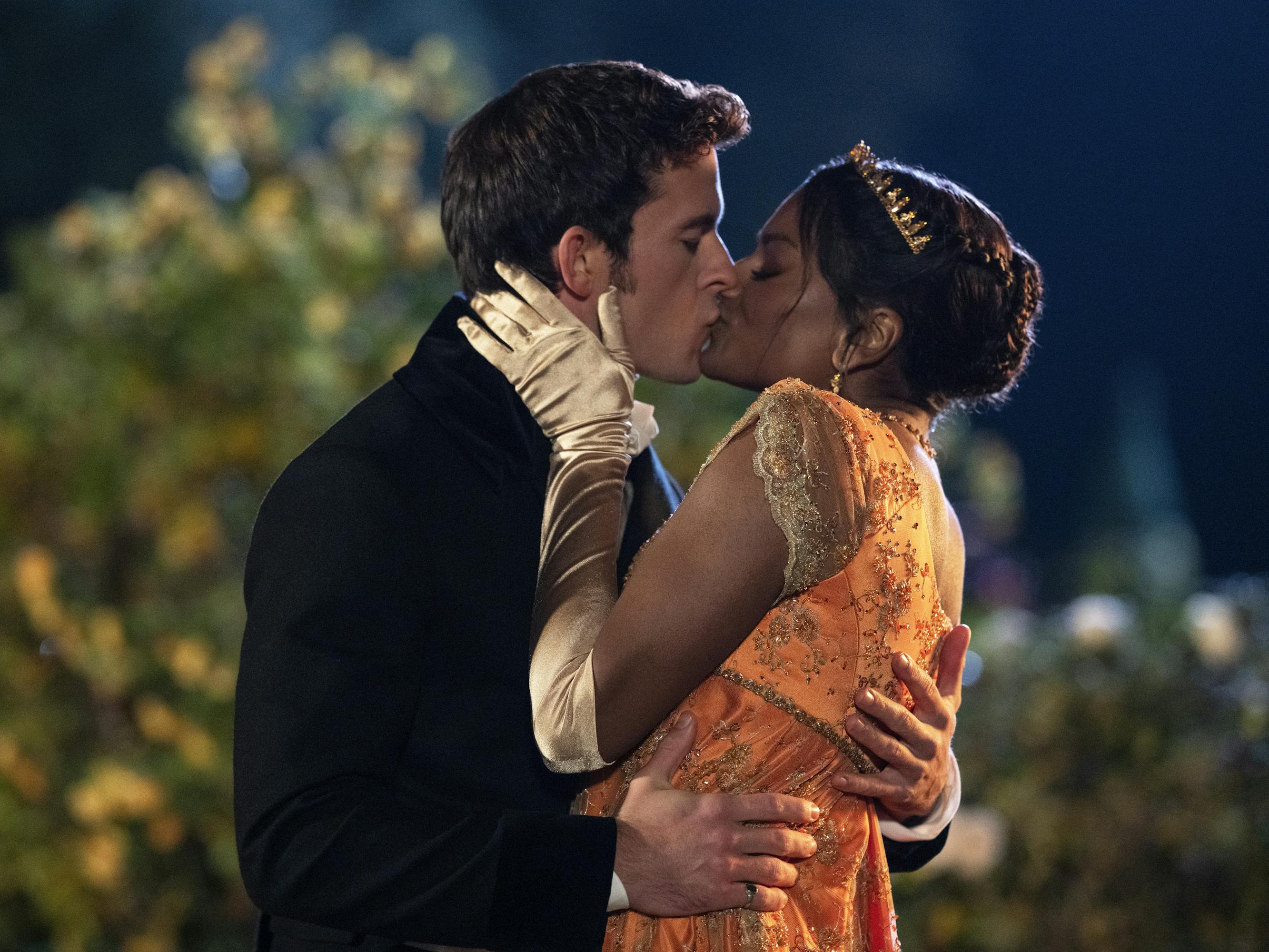
Anthony Bridgerton (Jonathan Bailey) and Kate Sharma (Simone Ashley) in Bridgerton
Intimacy Goes Beyond Romance
Talbot: I think sometimes people’s vision of [intimacy coordinators] is us walking on set with a clipboard for scenes of simulated sex and nudity. And it’s just so much broader than that, especially when we’re working on shows that contain family aspects, non-consensual aspects, all sorts of things. I can’t tell you how many birthing scenes I’ve been to. How many scenes of working with minors, and choreographing night club and pole dancing, and working with allure, seduction, that sort of thing. There’s a platonic intimacy that we work with, as well; scenes of parents and children who are not their [actual] kids. So if there’s hugging and kissing of children, that’s one adult to a minor that they don’t know, that needs facilitating as well.
Navigating Young Love
Thackeray: For Heartstopper, which features a young cast, a lot of them have never been on set or had a professional role as an actor. They might not necessarily say “no” or feel confident to have a voice when it comes to these moments. So, my role was a little bit more heightened in the way of, Hey, I’m here for you, and Is that a no? Are you just saying maybe because that’s definitely a no, or is that a clear yes? So, it was a lot more listening, but body listening. Euros [Lyn] is a great director and made them feel so comfortable, and he was great working with a young cast. There was a massive support bubble there for them.
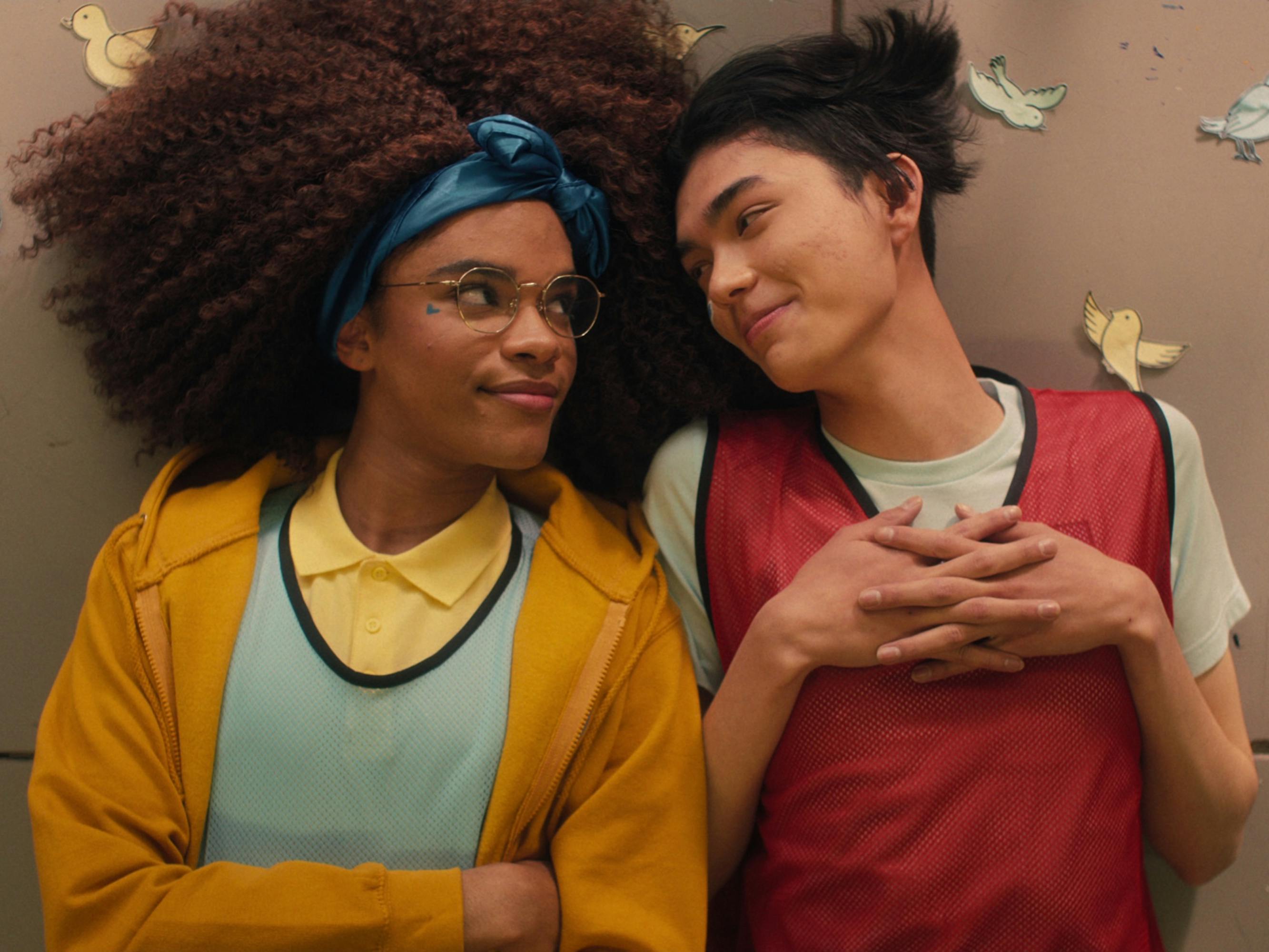
Elle (Yasmin Finney) and Tao Xu (William Gao) in Heartstopper
Sometimes It’s the Little Things
Talbot: Yes, Bridgerton has a lot of sex scenes, but you see people talking about when Rege-Jean Page is licking the spoon in Season 1; it’s such a well-known gif now. It’s always interesting with Bridgerton because you never know which moment’s going to be the big one; it is always something fairly unexpected. For example, in Season 2, obviously, it’s Jonathan [Bailey] getting out of the water with the wet shirt. People have gone absolutely crazy for him getting out of the water.
You see [intimacy] in the hand grazes, you see it in the removal of the gloves, you see it in the taking down of the stockings. It’s those sorts of details and touches that we don’t often experience in a modern world, but because they’re captured so beautifully, I think people have a newfound respect for it. It’s something about that Regency period that’s really magical that you don’t see with modern shows.
Caution: Ripped Pants and Flying Condoms Ahead
Talbot: I think there are elements that can be hysterical just like any other scene. Sometimes it doesn’t go perfectly and things will split up. I think Jonathan’s got a one-for-one in terms of trouser splitting on both [seasons of Bridgerton] at this point. There was a moment on Season 1 where we were in the middle of a simulated sex scene and his trousers split and you just heard this ripping sound and then intense laughter from everyone. Things can go wrong, but it’s not a trauma when it happens because it’s been set up in the right way.
Thackeray: [To protect the actors,] there are different costume things like barriers and pillows that are in play [to prevent unintentional contact] and the different padding that you can have inside those garments [like semi-deflated netballs], which are quite funny. And I think it’s happened twice now in Sex Education where we’ve had to throw a condom across the screen. You just see a flying condom. You might miss it if you don’t watch carefully.
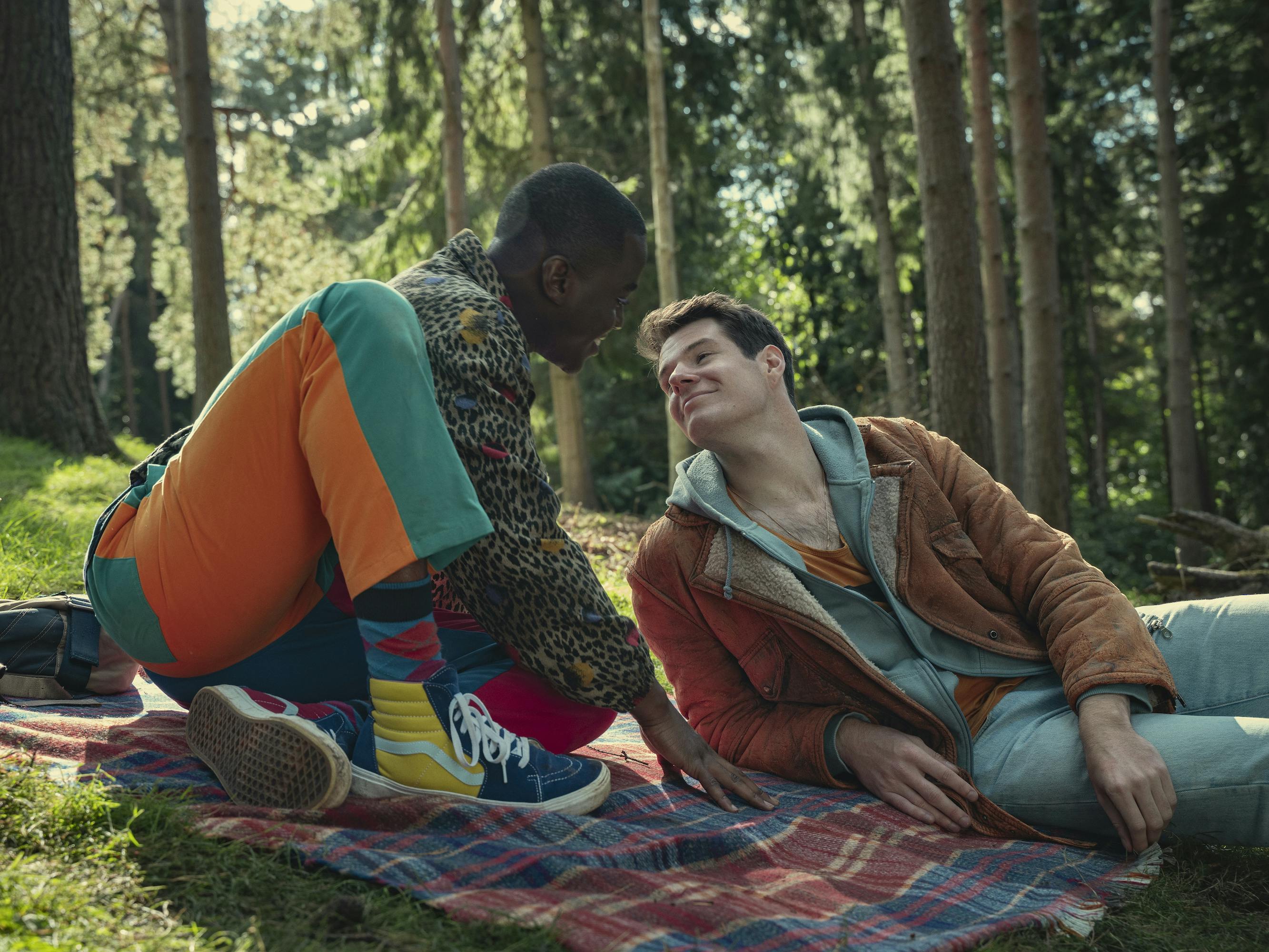
Eric Effiong (Ncuti Gatwa) and Adam Groff (Connor Swindells) in Sex Education
Shifting the Gaze
Talbot: Right from day one on Bridgerton, [the female gaze] was the viewpoint. It was so cool because I didn’t have to push for anything and everyone was on board. A notable example is Daphne’s wedding night. So often it is the bride that’s lying there in nothing and the groom’s fully clothed. Yet, what was really fun about the wedding night was that the tables were turned and we actually got to see the perspective of Daphne. And the focus is not penetrative orgasms every single time. I think that’s really important for everyone, not just women, watching this show.
In the first season, what you’re seeing is the education and exploration of Daphne and the fact that the story hinges on a sex act, so it’s going to have a much higher level of intimacy than perhaps some other storylines. However, [this season] it’s not about just the bodice-ripping scenes. It’s about creating the chemistry all the way through so that when you do have any scenes of intimacy, that you’ve really earned it. It’s not gratuitous, and people can enjoy it for that.
There’s something for women to really enjoy that maybe they haven’t seen before and certainly didn’t see growing up.
Thackeray: As an intimacy coordinator, and as actors who may not be part of the L.G.B.T.Q.I.A.+ community, it’s just important to research and listen. Representation completely matters, and we need more of these relationships. Heartstopper is a positive representation of that. Collaboration is key. It’s slow, but I think there’s some amazing things that are happening and eyes are being opened. I think it’s a great, great thing. I get goosebumps.
